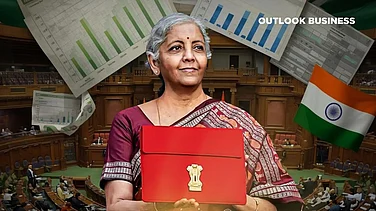With India’s growing focus on artificial intelligence (AI) at a time when global economies are heavily investing in the country’s transformative technology, the start-up ecosystem expects better infrastructure, tax incentives, and clarity on data privacy laws from the upcoming budget. Union Finance Minister Nirmala Sitharaman will present the budget for the financial year 2025-26 on February 1.
Industry leaders believe that enhanced access to data, and targeted skill development are crucial for addressing challenges like talent shortage, and high research and development (R&D) costs in the AI space. The government support for collaborations can position India as a global leader in AI innovation.
“Incorporation of strategic tax incentives in the forthcoming budget will be a boon for enterprise-startup collaboration in the Indian AI landscape. Technical capabilities and innovation are not what we are struggling with, rather it is getting to the enterprises to validate and scale their solutions,” said LEAPX AI CEO Vishal Kumar.
Access to Data, Infrastructure Needs
Another entrepreneur working in the AI sector highlights various challenges and opportunities the start-ups face despite government’s ongoing initiatives. Techchefz Digital founder Mayank Maggon suggests partnerships with government, academia, and industries can help start-ups leverage high-quality data effectively.
Besides this, the AI ventures also require advanced computational resources such as GPUs, cloud computing, and specialised tools to accelerate development and deployment, that too at affordable prices. “Creating AI parks and labs equipped with advanced resources and accelerating the rollout of 5G networks can enhance AI adoption and real-time applications,” he added.
Skill Development to Fill Talent Gaps
On the other hand, Proxgy founder Pulkit Ahuja calls for investment in skill development initiatives in artificial intelligence to fill the growing talent gap in this sector because start-ups often struggle to attract skilled workforce due to competition from larger companies. Hence, the government should expand Digital India to include AI-specific training and certificate programs, said Maggon.
So far, the central government has launched a program called ‘FutureSkills PRIME' in collaboration with NASSCOM for the upskilling of IT professionals in emerging technologies like artificial intelligence. In addition, the government introduced other programs, including National Programme on Responsible Use of AI for Youth, National Programme on Artificial Intelligence, etc to create awareness about the technology.
Similarly, there is the National AI Mission that aims to promote the usage of artificial intelligence (AI) for societal needs. The last budget also infused Rs 10,300 crore in the mission to develop indigenous AI capabilities and computing infrastructure. While schemes are already there, what becomes important is the implementation and easy accessibility for the same.
“Building on the Rs 10,300 crore allocation for the India AI Mission, there is a strong expectation for a marked increase in budgetary allocation for R&D, particularly in AI, machine learning, quantum computing, and blockchain,” said Poonam Mehta, Manager, Technology Research & Advisory, Aranca.
Legal Frameworks, Collaborations
Apart from infrastructure and data centres, experts recommend ethical AI frameworks, data privacy laws like Personal Data Protection Bill to ensure responsible innovation, public-private partnerships, and cross-border collaborations. Apurv Agrawal, CEO & cofounder, Squadstack calls for focus should be on creating sustainable AI ecosystems in tier-2 and tier-3 cities, ensuring distributed growth of this transformative.
“With the upcoming budget, we hope to see a stronger emphasis on AI research, talent development, and industry collaboration, ensuring India’s AI ecosystem continues to thrive and scale globally,” said Qentelli founder Sanjay Jupudi.
India’s AI start-ups remain optimistic that the forthcoming budget will deliver the support they need to overcome existing challenges and drive transformative change, setting the stage for the nation’s emergence as a global leader in artificial intelligence innovation. Reflecting this momentum, Prime Minister Narendra Modi recently engaged with global tech leaders, including Perplexity AI CEO Aravind Srinivas, and Microsoft CEO Satya Nadela to explore opportunities in the AI space.




























